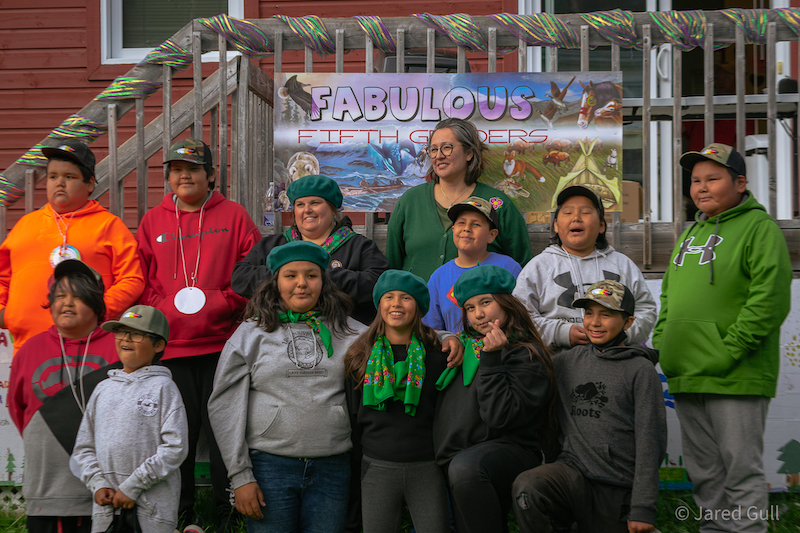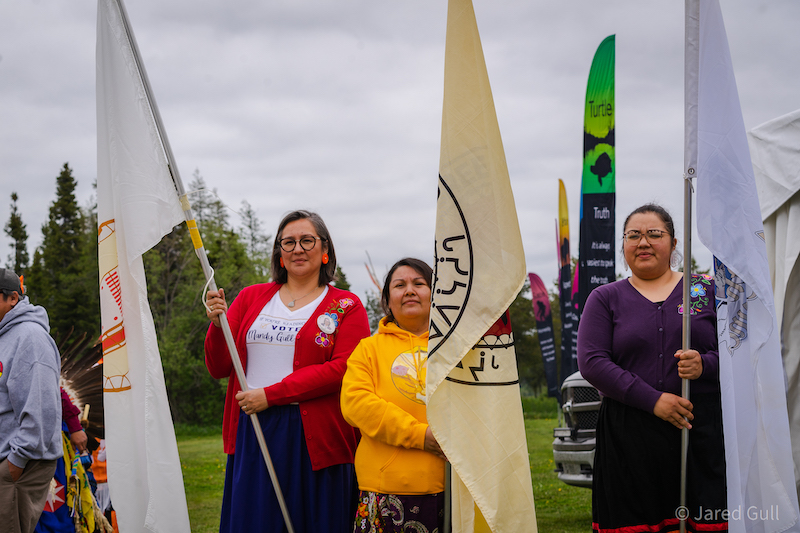Following two rounds of voting, Mandy Gull-Masty was elected Grand Chief of the Cree Nation July 29. With 3,120 votes, Gull-Masty garnered 64% of ballots cast, versus 36% for Pakesso Mukash (1,779 votes).
Gull-Masty emerged as the clear front-runner in initial voting but didn’t reach the 50% plus one needed for an outright win. In a surprising turn of events, however, incumbent Grand Chief Abel Bosum conceded defeat, suggesting that a prolonged election risked creating animosities that could jeopardize the unity of the Cree Nation.
“Our unity has been the pillar for our many advances and for facing the many challenges that have been before us,” Bosum stated. “It is always challenging to accept the outcome of an election that has not gone the way we had hoped. But I do so with peace in my heart and with faith that the strength of our Nation’s governance will easily support the transition we are soon to experience.”
Gull-Masty thus becomes the first female Cree Grand Chief as a wave of Indigenous women are winning leadership roles. Earlier in July, RoseAnne Archibald’s election as National Chief made her the first woman to lead the Assembly of First Nations. Closer to home, Mohawk Kahsennehawe Sky-Deer likewise the first woman to lead the Mohawk Council of Kahnawake.

Gull-Masty’s campaign message calling for greater transparency and accountability in governance clearly resonated with voters. Both Gull-Masty and Mukash criticized how the Grande Alliance agreement – presented as a vaguely defined $4.7 billion development framework – was negotiated and explained to the Crees of Eeyou Istchee.
“On the campaign trail, there were a number of issues that were regional,” Gull-Masty told the Nation. “Definitely, the Grande Alliance was at the top of the list, second was housing, then third was policing. My intention is to go to the communities, to clarify and to address their concerns – that’s what they asked for in the campaign. From there, we’ll come to a decision with a consensus from Cree Nation members.”
Gull-Masty said she had voiced concerns in her position as Deputy Grand Chief that the Alliance plan should have been communicated better with community members before it was announced.
“I really want to engage local leadership and community representatives to have a stronger voice so we can improve service,” said Gull-Masty. “I want people to have a direct relationship with their leadership – communicating a lot more, trying to engage our youth using social media, maybe a little more reporting over the radio.”
Gull-Masty will have a familiar face as Deputy Grand Chief. After placing second in the initial vote, Norman A. Wapachee surged to win 59% of the popular vote to defeat a former two-term Deputy Grand Chief, Ashley Iserhoff, in the runoff. Donald Nicholls placed third in the first round of voting.
Gull-Masty has known Wapachee since she was very young – his late brother was married to her aunt – and previously worked with him for four years in the Eeyou Planning Commission. In her first official meeting as Grand Chief, she looked forward to offering him guidance as he becomes acquainted with the vast CNG organization.
“I am honoured and truly touched by the tremendous amount of support I received from you,” posted Wapachee, who has a long history of community development in Ouje-Bougoumou. “It was truly a blessing to meet people, visit each community and participate in cultural activities. Reconciliation with Eeyou Istchee through our traditional values is an amazing experience one attains when one connects with the land and people.”

“I am honoured and truly touched by the tremendous amount of support I received from you,” posted Wapachee, who has a long history of community development in Ouje-Bougoumou. “It was truly a blessing to meet people, visit each community and participate in cultural activities. Reconciliation with Eeyou Istchee through our traditional values is an amazing experience one attains when one connects with the land and people.”
Both leaders share a passion for land protection. Gull-Masty was heavily involved in negotiations with Quebec to secure 20% of the region as protected areas – a starting point for Grande Alliance discussions.
“I’m hoping this transition will be a smooth one,” Gull-Masty said. “We just came from a leadership with somebody who had a long working relationship with Quebec, and I think he felt very comfortable with that relationship. It did bring a lot of positives. But I’m going to be a different kind of leader and Quebec is going to have to know me in this capacity.”





